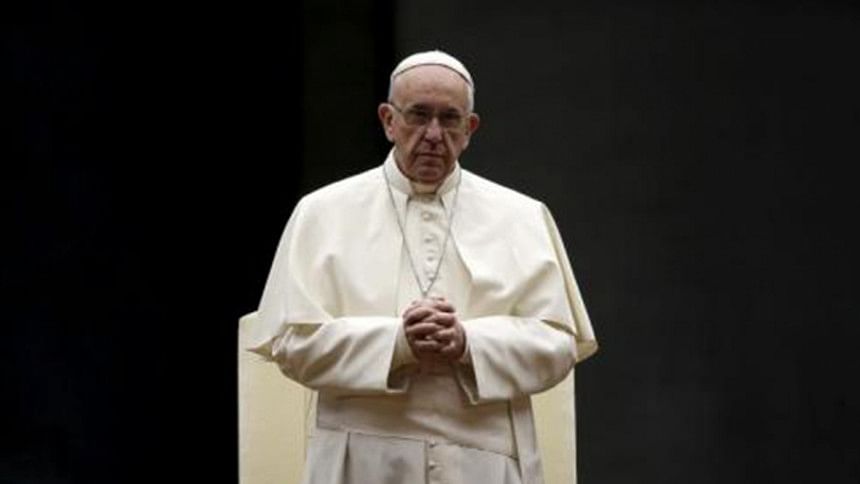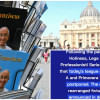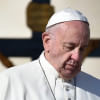Pope Francis: From a simple priest to Vicar of the Christ

Pope Francis is the first pope from the Americas, hailing from Argentina, which is more famous for its football.
Born in Flores, a neighbourhood of Buenos Aires on December 17, 1936 as Jorge Mario Bergoglio, he became a prominent figure throughout the continent as the Jesuit Archbishop of Buenos Aires, yet he remained a simple pastor.
He was deeply loved by his diocese, throughout which he travelled extensively on the underground and by bus during the 15 years of his episcopal ministry. That beloved Archbishop is Pope Francis today.
"My people are poor and I am one of them", he had said more than once, explaining his decision to live in an apartment and cook his own supper.
He always advised his priests to show mercy and apostolic courage and to keep their doors open to everyone. The worst thing that could happen to the Church, he said on various occasions, is "being self-centred".
When he speaks of social justice, he wants people to rediscover the Ten Commandments and the Beatitudes. His project is simple: if you follow Christ, you understand that "trampling upon a person's dignity is a serious sin".
Despite his reserved character — his official biography consisted of only a few lines until his appointment as Archbishop of Buenos Aires — he became a reference point because of the strong stances he took during the dramatic financial crisis that overwhelmed the country in 2001.
He asked the faithful not to come to Rome to celebrate his creation as Cardinal but rather to donate to the poor what they would have spent on the journey.
In October 2001 he was appointed General Relator to the 10th Ordinary General Assembly of the Synod of Bishops on the Episcopal Ministry.
At the Synod he placed particular emphasis on "the prophetic mission of the bishop", his being a "prophet of justice", his duty to "preach ceaselessly" the social doctrine of the Church and also "to express an authentic judgement in matters of faith and morals".
Though as a cardinal Bergoglio was becoming ever more popular in Latin America, he never relaxed his sober approach or his strict lifestyle, which some have defined as almost "ascetic".
In his spirit of humility, he declined to be appointed President of the Argentine Bishops' Conference in 2002. In 2005 he was elected to that position and then, in 2008, reconfirmed for a further three years.
As Archbishop of Buenos Aires — a diocese with more than three million inhabitants — he conceived of a missionary project based on communion and evangelisation.
He had four main goals, which included open and brotherly communities, an informed laity playing a lead role, evangelisation efforts addressed to every inhabitant of the city, and assistance to the poor and the sick.
He asked priests and lay people to work together. In September 2009 he launched the solidarity campaign for the bicentenary of the independence of the country.
He was elected Supreme Pontiff on March 13, 2013. On election, he assumed the name Francis because he loved the simplicity and the poor life style of the Saint Francis of Assisi.
"As you know, the duty of the conclave was to appoint a bishop of Rome. It seems to me that my brother cardinals have chosen one who is from far away. . . . Here I am. I would like to thank you for your embrace," Pope Francis said, addressing a crowd of tens of thousands in St Peter's Square, in the Vatican City in Rome, Italy, after his selection by the conclave.
In early December 2013, Pope Francis called for big changes in the Catholic Church, including rethinking long-ahead but antiquated customs.
"I prefer a Church which is bruised, hurting, and dirty because it has been out on the streets, rather than a Church which is unhealthy from being confined and from clinging to its own security....I do not want a Church concerned with being at the center and then ends by being caught up in a web of obsessions and procedures," the pope said in an address.
He warned of the dangers of climate change in June 2015 in a Papal message about the environment, saying, "If present trends continue, this century may well witness extraordinary climate change and an unprecedented destruction of ecosystems, with serious consequences for all of us".
Pope Francis also showed his support to the Big Bang theory and evolution.
"The Big Bang, which today we hold to be the origin of the world, does not contradict the intervention of the divine creator but, rather, requires it." He also said that evolution "is not inconsistent with the notion of creation," he told members of the Pontifical Academy of Sciences.
Sources: http://w2.vatican.va

 For all latest news, follow The Daily Star's Google News channel.
For all latest news, follow The Daily Star's Google News channel. 








Comments